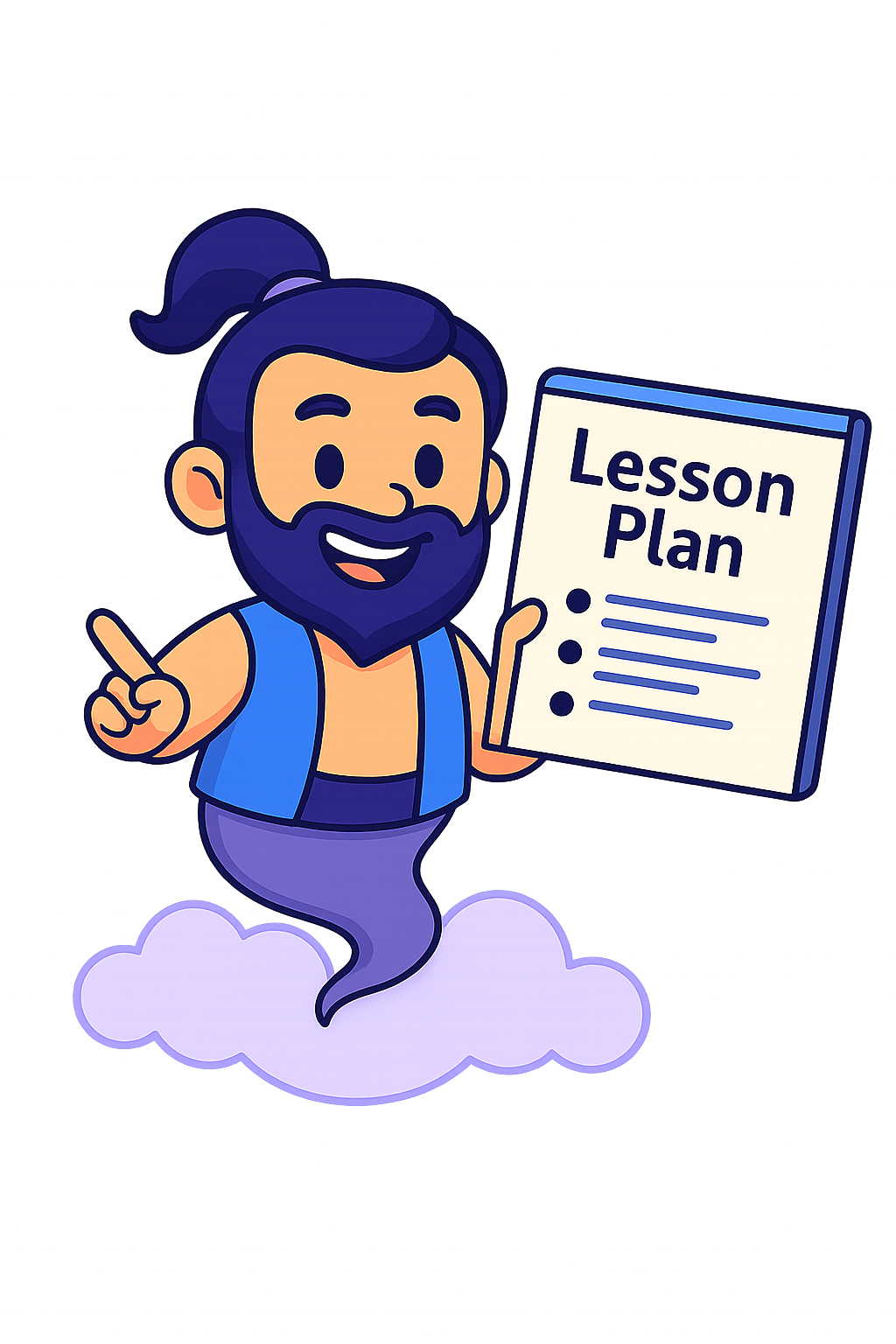 Using Context Clues to Understand New Vocabulary
Using Context Clues to Understand New Vocabulary
Objective: Students will learn how to use context clues in sentences to determine the meaning of unfamiliar words, enhancing their reading comprehension and vocabulary skills.
Learning Objectives
- Identify unfamiliar words in a sentence or short passage.
- Use surrounding words or phrases (context clues) to infer the meaning of new vocabulary.
- Explain the meaning of new words in their own words.
Materials Needed
- Printed worksheet with sentences containing unfamiliar words
- Pencil or pen
- Notebook for writing new vocabulary
- Highlighter
Key Vocabulary
- Context Clues
- Hints or information within a sentence or paragraph that help readers understand the meaning of an unfamiliar word.
- Vocabulary
- The collection of words a person knows or uses.
- Inference
- A logical guess made based on evidence and reasoning rather than explicit statements.
Detailed Activities
Discovering Word Meanings with Context Clues
- Begin by explaining what context clues are and why they are helpful when reading.
- Read aloud a short sentence containing an unfamiliar word and model how to use the words around it to guess its meaning.
- Distribute the worksheet with sentences that include unfamiliar words.
- Have the student read each sentence and underline the unfamiliar word.
- Guide the student to highlight the words or phrases near the unfamiliar word that help explain its meaning.
- Ask the student to write down what they think the word means in their own words.
- Review the answers together and discuss why the context clues helped determine the meaning.
Parent & Instructor Notes
- Encourage your child to think about how the sentence or story gives hints about the meaning of new words.
- Be patient and praise effort rather than just correct answers to build confidence.
- You can extend this skill by practicing with books or articles your child reads at home.
Assessment Questions
- What are context clues and why do we use them?
- Can you find the meaning of the word ‘___’ using the sentence it is in?
- Explain in your own words what the unfamiliar word means based on the clues around it.
Extension Ideas
- Have your child write their own sentences using new vocabulary words they learned through context clues.
- Read a short story together and pause to identify new words and use context clues to understand them.
- Create flashcards with new words and their meanings inferred from context to review regularly.
Frequently Asked Questions
That’s a great learning moment! Discuss why their guess was reasonable based on the clues and gently guide them to the correct meaning, reinforcing how context clues work.
You can look up the word together in a dictionary or online after trying to use context clues, showing your child how to find reliable information.
Try to include context clue practice during daily reading sessions. Even a few minutes each day helps build strong vocabulary skills over time.
Teacher’s Guide
Common Misconceptions:
- Students may think they need to look up every new word instead of trying to use context clues first.
- Children might guess meanings based only on part of the sentence and miss other helpful clues.
- Some students may confuse context clues with guessing randomly without evidence.
Scaffolding Ideas:
For Struggling Students:
- Provide sentences with stronger and clearer context clues.
- Use pictures or gestures to support understanding of new words.
- Work together on fewer sentences to build confidence before increasing difficulty.
For Advanced Students:
- Challenge with sentences that have more subtle or multiple types of context clues.
- Ask students to create their own sentences using context clues for new vocabulary.
- Encourage exploration of synonyms or antonyms for new words.
Pacing Recommendations:
- Spend the first 10 minutes introducing and modeling context clues.
- Use 25 minutes for guided and independent practice with the worksheet.
- Reserve 10 minutes for review, discussion, and answering questions.
Standards
- 8.L.5c — Use context clues to determine the meaning of unfamiliar words and phrases.
Printable Worksheet
Plan Your Own Lesson
Looking for a custom lesson plan? Try our Lesson Planning Generator — create standards-based plans for any topic, instantly!
Common Core Aligned Lesson Plans
Looking for another common core lesson? See all of the lesson plans here.
More Free Lesson Plans
We’re adding more every week! Check back soon or explore all our lesson plans here.

 Using Context Clues to Understand New Vocabulary
Using Context Clues to Understand New Vocabulary
Leave a Reply